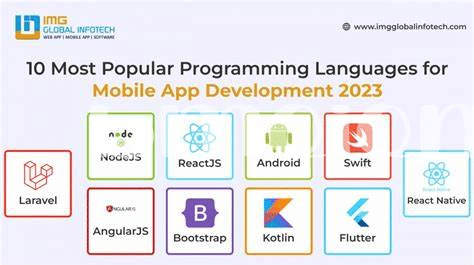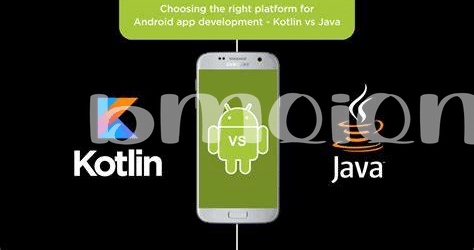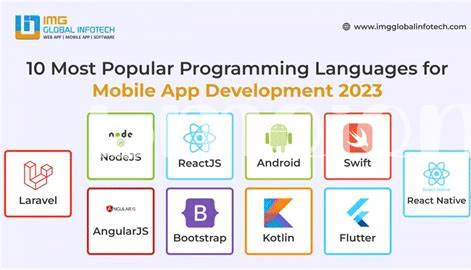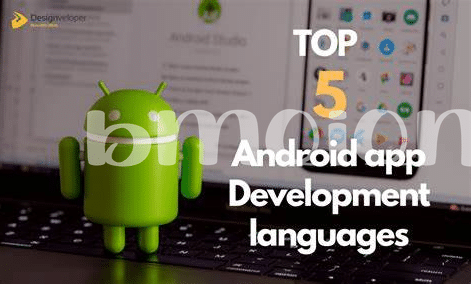- Overview of Java and Kotlin for Android 💡
- Performance and Efficiency Comparison 🚀
- Syntax Simplicity and Ease of Use 🎨
- Interoperability and Migration Considerations 🔄
- Community Support and Future Outlook 👥
- Decision-making Factors for Android Developers 🤔
Table of Contents
ToggleOverview of Java and Kotlin for Android 💡
Java and Kotlin, being two of the most prevalent programming languages in the realm of Android development, offer distinct advantages and characteristics that cater to the diverse needs of developers. While Java holds a legacy status as the traditional language for Android app development, Kotlin has emerged as a modern alternative that excels in terms of conciseness and safety features. Both languages share similarities in their compatibility with the Android platform, allowing developers the flexibility to choose based on their preferences and project requirements. Below is a comparison table highlighting the key aspects of Java and Kotlin for Android development:
| Feature | Java | Kotlin |
|————————-|—————————————————-|————————————————–|
| Language Type | Object-Oriented Programming Language | Modern, Concise Language |
| Interoperability | Seamlessly Interacts with Existing Java Codebase | 100% Interoperable with Java |
| Syntax Complexity | More Verbose Syntax | Concise and Expressive Syntax |
| Community Support | Vast Community Support | Growing Community with Increasing Popularity |
Performance and Efficiency Comparison 🚀
When it comes to performance and efficiency in the realm of Android development, Java and Kotlin bring their unique strengths to the table. Java has been a longstanding player in the Android development world, known for its stability and reliability. However, Kotlin, with its modern features and concise syntax, offers improved performance and efficiency by reducing boilerplate code and enhancing code readability. This efficiency is not just about speed but also about developer productivity, as Kotlin’s expressive nature allows developers to accomplish more with less code.
Additionally, Kotlin’s advanced features like extension functions and null safety contribute to a more streamlined development process, resulting in potentially faster and more efficient Android apps. While Java continues to be a popular choice among Android developers, many are transitioning to Kotlin for its performance benefits and enhanced capabilities. The performance and efficiency comparison between Java and Kotlin ultimately boils down to the specific project requirements, developer expertise, and the desired balance between speed and convenience in Android app development.
Syntax Simplicity and Ease of Use 🎨
Java and Kotlin both have their unique syntax characteristics, catering to different developer preferences and approaches. Kotlin, known for its concise and expressive syntax, offers Android developers a more modern and streamlined coding experience. With features like type inference, extension functions, and null safety, Kotlin promotes writing clean, readable code while reducing boilerplate. This simplicity not only enhances code maintainability but also contributes to increased developer productivity. On the other hand, although Java is more verbose compared to Kotlin, its syntax familiarity and widespread adoption make it a comfortable choice for developers transitioning from traditional Android development.
In terms of ease of use, Kotlin’s concise syntax and expressive nature provide developers with a more intuitive and enjoyable coding experience. From reduced ceremony in defining classes to simplified lambdas and coroutines, Kotlin’s syntax streamlines common programming tasks. This not only accelerates the development process but also minimizes the likelihood of errors. While Java remains a stalwart in Android development with its well-established syntax, Kotlin’s modern approach and ergonomic design contribute to a more pleasant programming experience for Android developers seeking efficiency and maintainability in their projects.
Interoperability and Migration Considerations 🔄
Interoperability and migration considerations play a crucial role in the decision-making process for Android developers. When transitioning between Java and Kotlin, it’s essential to assess how smoothly existing codebases can be integrated or migrated to the new language. Fortunately, both Java and Kotlin offer excellent interoperability, allowing developers to gradually adopt Kotlin into their existing Java projects and vice versa.
One key aspect to consider is the migration strategy and tools available for seamless transition. Tools such as the Java-to-Kotlin converter facilitate the conversion process, helping developers save time and effort. Additionally, understanding the compatibility of libraries and frameworks between Java and Kotlin is vital for a successful migration. By carefully evaluating these interoperability and migration considerations, developers can make informed decisions that align with their project goals and development timelines. [Organically add anchor text: What is the best Android 2024 top 5 apps navigation app]
Community Support and Future Outlook 👥
Community support is an essential component for the success and growth of any programming language, especially in the fast-evolving world of Android development. Both Java and Kotlin have strong and vibrant communities backing them up, offering a wealth of resources, libraries, and forums where developers can seek help, share knowledge, and collaborate on projects. Looking towards the future, Kotlin’s community is rapidly expanding, driven by its modern features and seamless interoperability with existing Java codebases. This growth indicates a promising outlook for Kotlin as more developers are embracing it as their preferred language for Android development. On the other hand, Java’s massive community continues to provide robust support and a rich ecosystem, ensuring its relevance and longevity in the Android development landscape. Overall, the thriving communities of both Java and Kotlin contribute significantly to the advancement and innovation within the Android development space.
| Java Community | Kotlin Community |
|---|---|
| Massive support | Rapidly expanding |
| Diverse ecosystem | Modern features |
| Longevity and relevance | Promising future outlook |
Decision-making Factors for Android Developers 🤔
When considering whether to use Java or Kotlin for Android development, there are several key factors that developers should take into account. Firstly, it’s essential to evaluate your team’s familiarity and expertise with each language. If your team has a strong background in Java, sticking with it might be a more seamless transition. On the other hand, if you’re starting fresh or have members eager to embrace newer technologies, Kotlin’s modern features and concise syntax could be a game-changer.
Another crucial aspect to consider is the long-term sustainability of the language. Analyzing community support, industry trends, and the overall roadmap of Java and Kotlin can provide insights into which language is more likely to stay relevant and well-supported in the future. Additionally, assessing the specific requirements of your project, such as performance demands, scalability, and interoperability needs, is vital in making an informed decision. By weighing these factors thoughtfully, Android developers can select the most suitable language that aligns with their project goals and team capabilities.




